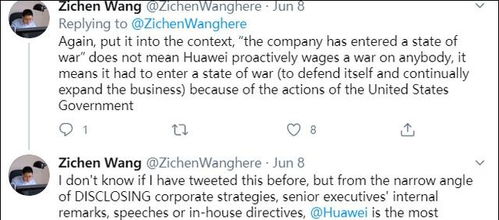Blood Thicker Than Water: An Unbreakable Bond
"Blood is Thicker than Water": An In-depth Exploration of Its English Translation and Cultural Implications

In the realm of idiomatic expressions, "blood is thicker than water" stands as a timeless phrase that encapsulates the profound bonds of familial relationships. This saying has traversed cultures and languages, retaining its essence despite being translated into various forms. To fully grasp the nuances and cultural implications of "blood is thicker than water," it is crucial to delve into its origins, the English translation, and the broader context in which it operates.

Origins and Literal Meaning

The saying "blood is thicker than water" is believed to have originated in multiple cultures independently. In its literal sense, the phrase compares the viscosity of blood to that of water, suggesting that blood, being thicker, signifies a stronger, more enduring connection. This metaphor resonates deeply with the concept of family ties, which are often perceived as unbreakable and transcending mere acquaintance or friendship.

English Translation and Variants
The direct English translation of "blood is thicker than water" remains unchanged, preserving its original metaphorical meaning. However, the phrase has inspired numerous variations and paraphrases that capture its spirit in different ways:
"Family ties are stronger than any other bond."
"Kinship outweighs all other connections."
"Blood relations are more enduring than those formed by choice."
These translations and variations highlight the universal appeal of the original idiom, emphasizing the intrinsic strength and resilience of familial bonds.
Cultural Implications and Usage
The cultural implications of "blood is thicker than water" are vast and multifaceted. Across various societies, this phrase underscores the importance of family loyalty, obligation, and the shared experiences that forge deep, enduring connections.
1. Family Loyalty
In many cultures, family loyalty is paramount. The phrase serves as a reminder that one's blood relatives are the ones who will stand by them through thick and thin. This loyalty often transcends rationality, leading individuals to prioritize their family's well-being even at personal cost. In such contexts, "blood is thicker than water" is invoked to justify actions or decisions that prioritize family over other considerations.
2. Obligation and Duty
The idiom also implies a sense of obligation and duty towards one's family. In some cultures, taking care of elderly parents, supporting siblings, or aiding extended family members is seen as a moral imperative. "Blood is thicker than water" serves as a moral compass, guiding individuals towards fulfilling these familial obligations.
3. Shared Experiences and Identity
Beyond loyalty and obligation, the phrase emphasizes the shared experiences and identities that bind family members together. These experiences, whether joyous or traumatic, forge an emotional and psychological bond that is difficult to sever. The idiom underscores the idea that one's family is an integral part of their identity, shaping their values, beliefs, and behaviors.
Contextual Applications
The versatility of "blood is thicker than water" allows it to be applied in various contexts, ranging from personal relationships to broader societal issues.
1. Personal Relationships
In personal relationships, the idiom is often invoked when discussing conflicts or difficulties within a family. It serves as a reminder that despite disagreements or misunderstandings, family members share a fundamental bond that should be cherished and nurtured. This perspective can foster forgiveness, reconciliation, and a stronger sense of unity.
2. Inheritance and Wealth Distribution
In the realm of inheritance and wealth distribution, "blood is thicker than water" can influence decisions about who receives what. Many cultures prioritize the transfer of wealth and assets to blood relatives, seeing it as a way to preserve the family's legacy and ensure its continued prosperity.
3. Adoption and Foster Care
The idiom also raises questions about the nature of family bonds in adoption and foster care scenarios. While adopted or fostered children may not share biological ties with their caregivers, the nurturing and emotional support provided can forge equally strong or even stronger bonds. In these cases, "blood is thicker than water" may be challenged by the idea that love, care, and shared experiences can transcend biology.
Global Variations and Cultural Nuances
While the core meaning of "blood is thicker than water" remains consistent across cultures, its interpretation and application can vary significantly.
1. Western Cultures
In Western cultures, the idiom is widely recognized and often used to emphasize the importance of family loyalty and obligation. However, individualism and the pursuit of personal goals are also highly valued, leading to situations where familial bonds may be strained or even severed. In such cases, "blood is thicker than water" can serve as a reminder of the underlying strength of family ties, encouraging reconciliation and renewed commitment.
2. Eastern Cultures
In Eastern cultures, such as those in China, Japan, and India, the family unit is often seen as the cornerstone of society. The idiom "blood is thicker than water" resonates deeply with these cultures, where filial piety, respect for elders, and family harmony are highly esteemed. In these contexts, the phrase is used to uphold traditional family values and reinforce the idea that family loyalty is a virtue that should be upheld at all costs.
3. African Cultures
In African cultures, the extended family is a crucial aspect of social life. "Blood is thicker than water" is often invoked in discussions about communal living, resource sharing, and the collective well-being of family members. These cultures emphasize the interconnectedness of family members and see their bond as a source of strength and resilience in the face of adversity.
4. Indigenous Cultures
Indigenous cultures around the world often have their own unique versions of "blood is thicker than water." These expressions may reflect the specific social structures, kinship systems, and cultural practices of these communities. For instance, some indigenous groups emphasize the importance of clan loyalty, seeing it as a way to maintain cultural continuity and identity.
Conclusion
"Blood is thicker than water" is an idiom that transcends languages and cultures, encapsulating the profound bonds of familial relationships. Its English translation remains straightforward, yet its cultural implications and contextual applications are vast and multifaceted. By exploring the origins, variations, and cultural nuances of this phrase, we can gain a deeper understanding of the complex nature of family bonds and their enduring significance in human life. As we navigate the complexities of modern society, let us remember the wisdom of this timeless idiom and cherish the unbreakable bonds that unite us as family.
- 上一篇: 《最终幻想12》全宝箱地图指南:中文版详尽宝箱分布及稀有宝藏揭秘
- 下一篇: 揭秘:ymx注册全面解析
新锐游戏抢先玩
游戏攻略帮助你
更多+-
05/02
-
05/02
-
05/02
-
05/02
-
05/02









